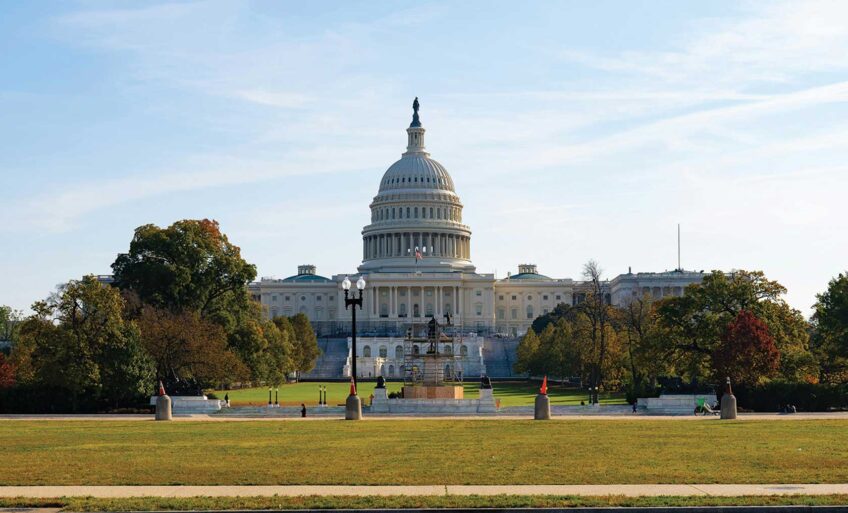2008: An unforgettable year for black leadership
Last year marked an unforgettable chapter in black leadership, nationally as well as locally.
It was the year that a black man was elected to the highest office of our land. It was the year of intense scrutiny of Boston’s black leaders, not only from the FBI, but also from the mainstream press who pitted black leaders and generations against each other, just when they were poised to unify and rebuild the black community.
Right after Barack Obama was elected president, and City Councilor Chuck Turner and former state Sen. Dianne Wilkerson were charged with bribery, local reporters started asking the question, “Who is the next black leader in Boston?” — as if there were only one to begin with. And to add insult to injury, they painted this “next black leader” as a colorblind young person determined to rule the city by kicking older black leaders to the curb.
In December, the Boston Globe published an article headlined “Insiders seek to recast black politics in Boston,” which highlighted young black leaders and made older black ones seem irrelevant.
Black leadership in this town is far more complicated and nuanced than recent headlines suggest. The local media bring out one “community” photo to publish or, if generous, a few elite blacks to write about, then parade their personae and organizations in front of Boston. The media choose the black community’s next leader, and the resources and power flow abundantly their way.
Blacks play into the “single black leader” mythology, too. We take our cues and leaders from the national scene, from MLK and Malcolm to Jesse and Sharpton, and now Obama. Our national leaders, like our local ones, usually fit an established profile — a religious figure or politician, male, over 40 — and they don’t share the stage at the same time.
Local black clergy and public officials will play a crucial role in shaping the community, but hopefully more than one will get the spotlight this time around. And community, philanthropic, business and college leaders should be recognized for their role in effecting change, too.
Black women are trying to take guns off the street, educate their children and end poverty. They are running community organizations, working out of church basements or organizing local meetings. They aren’t sitting at the “power” table with prominent decision-makers, but they are sitting at the community table getting the work done on a shoestring budget. They don’t get the press, and they certainly don’t get the glory.
On the other hand, talking about the next generation of young black leaders is all the rage, and in the most detrimental ways. The 20- and 30-something black leaders in Boston are taking major roles in civic and social circles, but not by ignoring the legacy of past leaders.
A transfer of knowledge and leadership from black elders to the younger members of the community is under way, but it was happening well before the media turned their attention to Wilkerson and Turner. People of my generation are meeting regularly with this city’s seasoned black leaders to figure out ways to rebuild the black community. We are planting the seeds to launch programs to support emerging black leaders, to encourage black candidates to run for office, to hold public officials accountable and to tackle pressing issues like the struggling economy, education, youth violence, CORI reform and civic engagement.
My generation of leaders will not ignore racial inequality, despite suggestions by some that we are entering a utopian “post-racial” Obama world. Racism is persistent; in comparison to whites, blacks still end up on the bottom of every quality-of-life measure, from education and health outcomes to violence, employment and poverty. No one president is likely to change these conditions, even Obama, who shares my mixed ancestry and good intentions. Institutional racism is a tough nut to crack.
Instead of focusing on one shiny and new black leader, we should be asking who are the black leaders (plural), organizations and coalitions that will come together in this next decade to improve the conditions affecting black people. How can all of us step up in this time of great opportunity and pain to strike a final blow against inequality, poverty and injustice in the black community?
We need a multitude of black leaders from various generations, genders and socioeconomic backgrounds to rebuild this community. We can make bold changes by engaging others to take action and cultivating civic power. We will need to be strategic, collaborative and relevant, and we will need to show results instead of headlines. To do this, we will need resources. At the charitable foundation I lead, Access Strategies Fund, we took a hard look at ourselves and realized that we were not investing in the black community at the level we should. We turned that around, but we need more funders joining us.
In 2009, it will be everyday citizens, activists and funders engaged in captivating campaigns that will make progress for the black community, not just the one or few leaders chosen for us.
Kelly Bates is the executive director of Access Strategies Fund, a charitable foundation that supports organizations with resources to help diverse communities access the democratic process.






